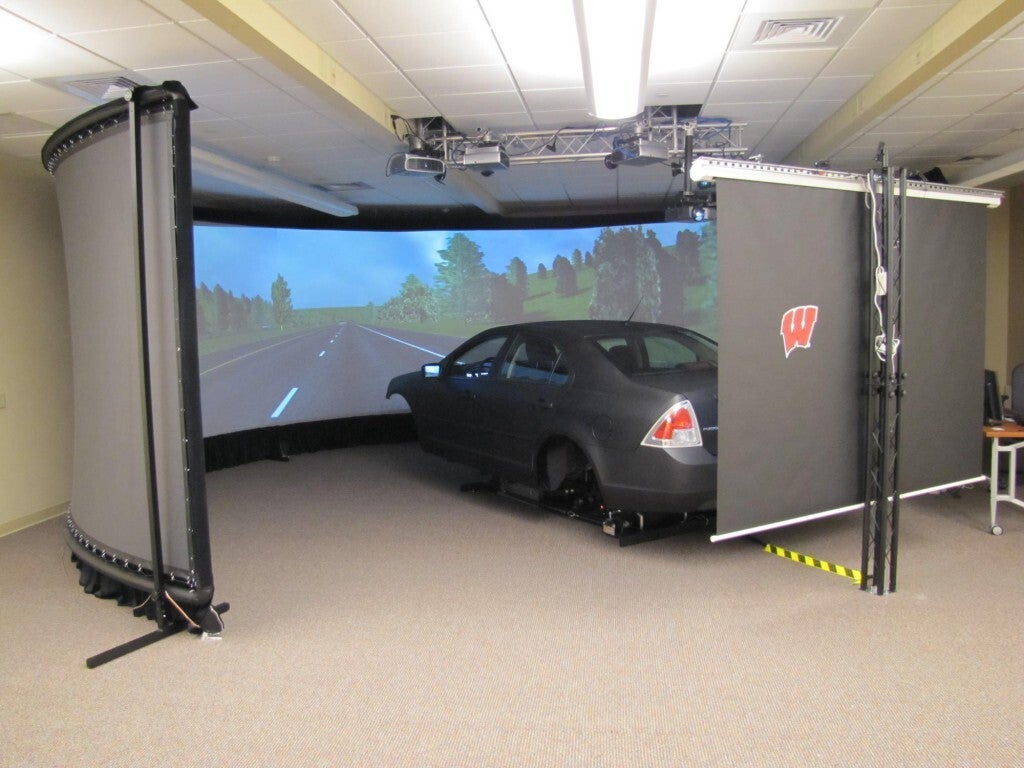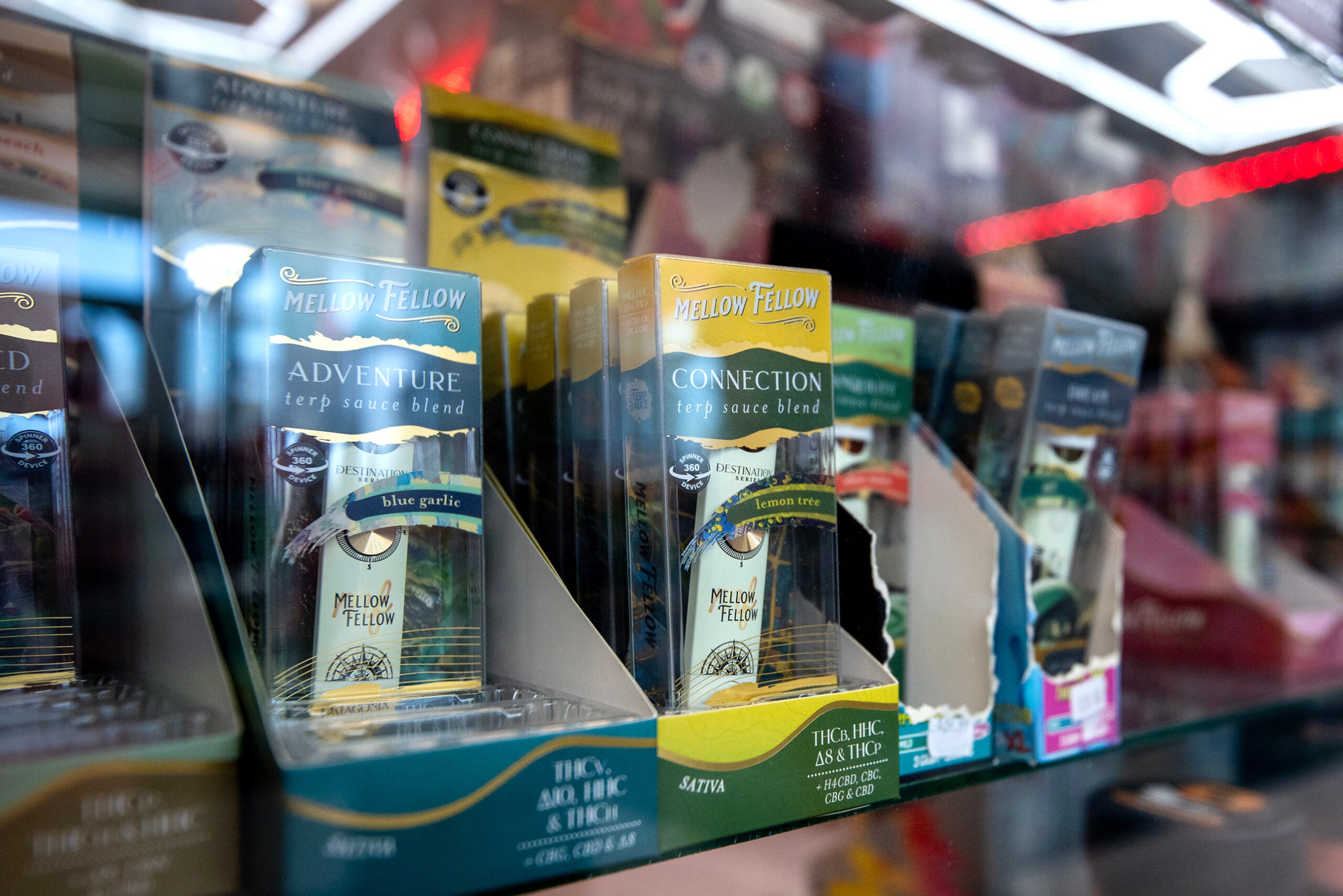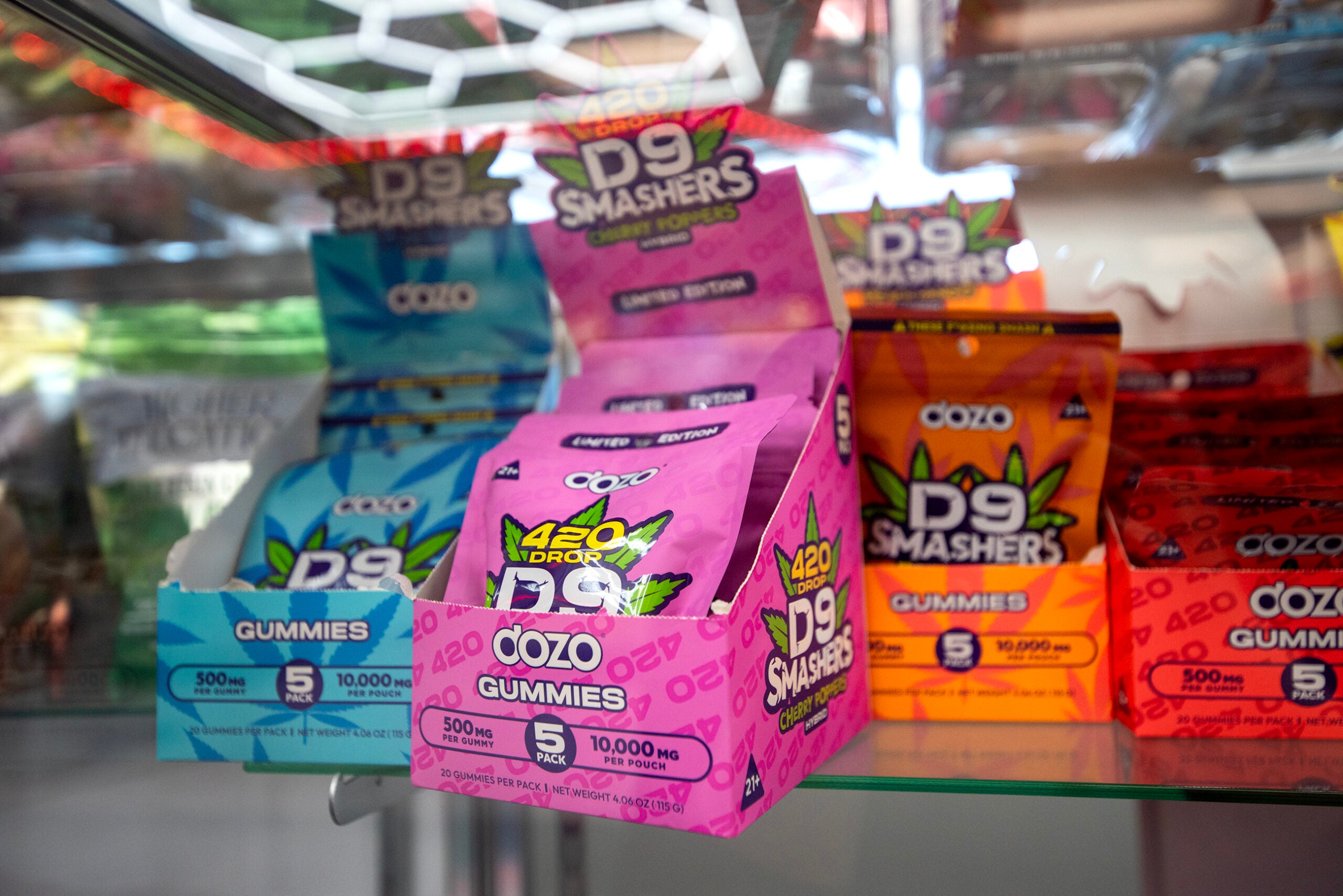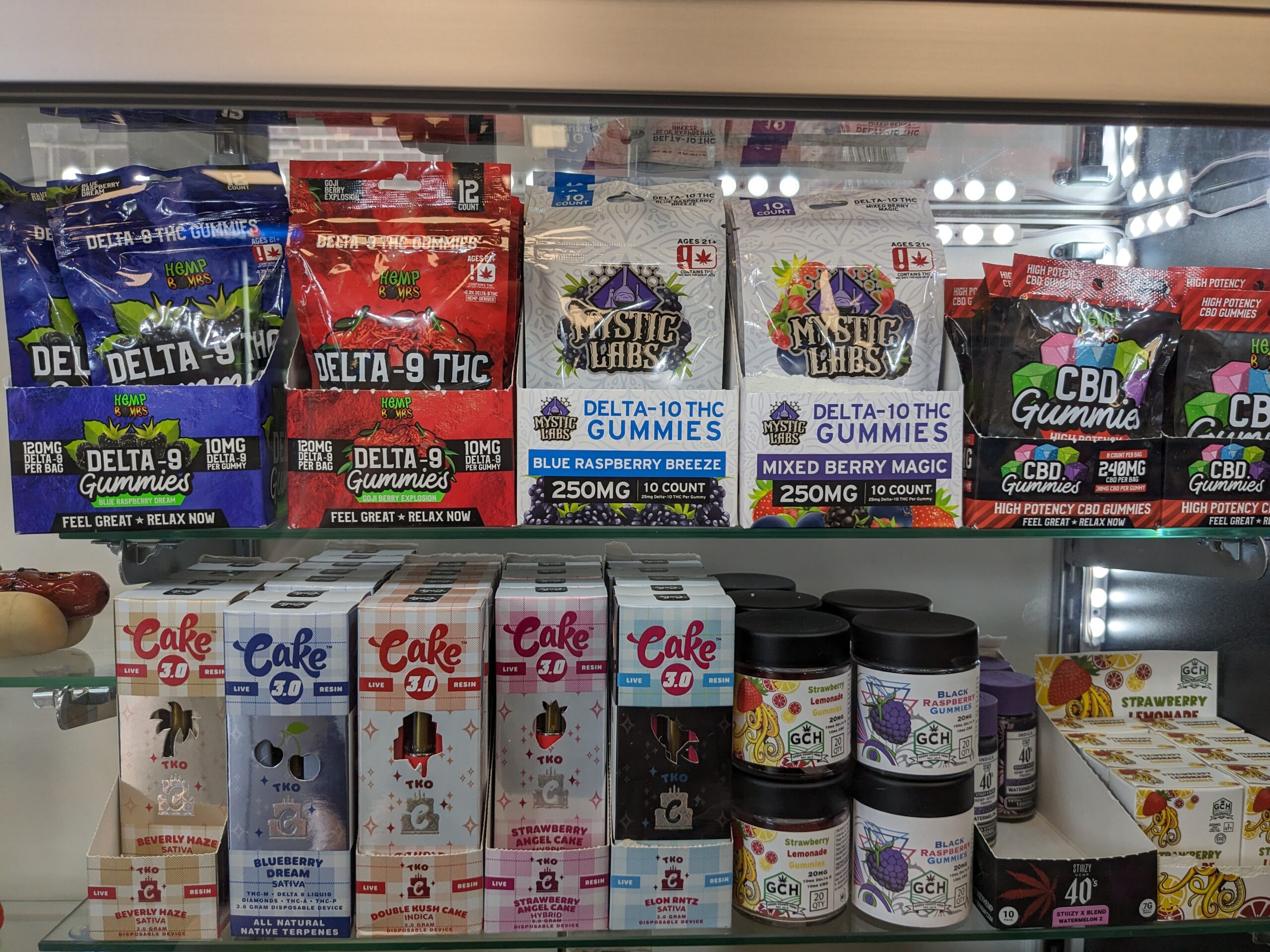Researchers at the University of Wisconsin–Madison are gearing up to administer set levels of delta-8 and delta-9 THC to people in a pilot study, and place them in a driving simulator.
Their goal?
To see how the drugs influence people behind the wheel.
News with a little more humanity
WPR’s “Wisconsin Today” newsletter keeps you connected to the state you love without feeling overwhelmed. No paywall. No agenda. No corporate filter.
Heather Barkholtz is the study’s lead researcher. She said since the 2018 farm bill legalized hemp production, Wisconsin businesses have cropped up to sell products derived from the cannabis plant.
Delta-9 THC is responsible for the “high” feeling people get from marijuana, which is illegal in Wisconsin. But companies advertise tinctures and edibles with delta-8 THC derived from the legal hemp plant, or levels of delta -9 THC that are under the legal limit.
“So driving around, you can see advertisements for delta-8 THC and delta-9 THC,” said Barkholtz, who is an assistant professor in the School of Pharmacy at the UW-Madison. “And I became very interested in: What do we know about them? And when I looked at the literature, I found out the answer was not much.”
Along with a team of UW-Madison researchers, Barkholtz set out to study how delta-8 THC, which can be derived from hemp, compares to delta-9 THC, which is found in marijuana, in a driving simulator.
“Because we want our roadways to be as safe as possible,” Barkholtz said.
The products, bought in Wisconsin or elsewhere, don’t always list if the drugs can impair driving, and how long people should wait to drive after using them, Barkholtz added. She hopes her research can create standards for products containing delta-8 THC.
“We suspect that they are still impairing, but that it’s not necessarily one to one,” Barkholtz said.
Before the researchers can study how the drugs differ when it comes to driving, they need to run a pilot clinical trial. Barkholtz’s team is currently recruiting participants. In the trial, people will sit in a driving simulator after being given a set dose of delta-8 THC, delta-9 THC or a placebo. Then, their driving behavior and cognition will be tested.
“They’ll do simulated driving experiments, as close to real world as we can get,” Barkholtz said.
In the future, she hopes to run bigger studies and help law enforcement officers refine their sobriety tests to notice if people are impaired by THC on the road.
Wisconsin Public Radio, © Copyright 2025, Board of Regents of the University of Wisconsin System and Wisconsin Educational Communications Board.







